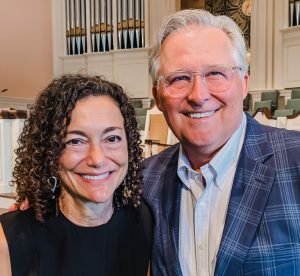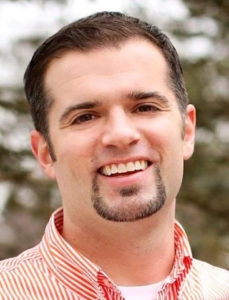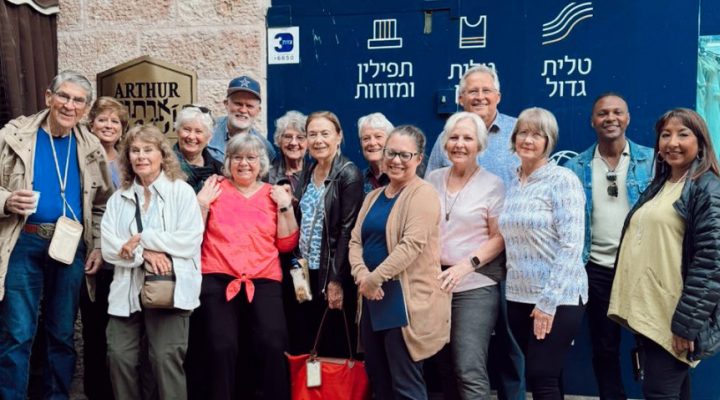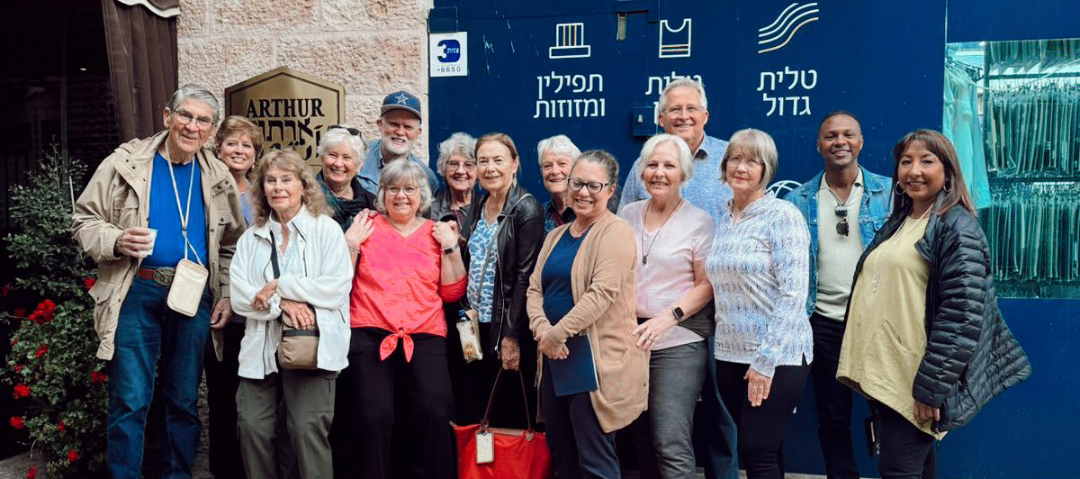Being in Israel during the outbreak of war is like witnessing the unfolding of history in its most horrible and violent aspects, George Mason said Oct. 9 from near the Sea of Galilee.
Mason had been in Jerusalem two days earlier preparing to lead a “What Makes This Land Holy?” interfaith experience when Hamas launched a surprise rocket, ground and paraglider attack from Gaza, leading Israel to declare a state of war and to begin retaliatory strikes in the Palestinian territory. More than 1,500 Israelis and Palestinians, and at least 11 Americans, have been killed so far.
“I realize I am proximate to something very important taking place, but I am also deeply grieved by the loss of life and the fact that in war we typically lose all perspective and assign ‘good guys’ and ‘bad guys’” to the adversaries. “While we should not excuse Hamas, this should not be a license for Israel to retaliate in ways that are inhumane,” said Mason, senior pastor emeritus of Wilshire Baptist Church in Dallas and now leader of the nonprofit Faith Commons.

Jewish rabbi Nancy Kasten and Baptist pastor George Mason were to lead an interfaith trip to Israel this week. Mason and part of the group made it there before the Hamas attacks began, while Kasten and the rest of the group were prevented from travel.
Half of Mason’s group was enroute to Israel when the attacks began and only learned of the conflict when they landed in Tel Aviv, he said. The remainder had their flights canceled before leaving on the trip organized by Faith Commons.
Tour members already in Israel were shaken by the battles unfolding near them, Mason said. “We did not see any explosions and we did not see any fighting, but we heard rockets exploding and we heard Israel’s Iron Dome (anti-missile system) destroying some of the rockets.”
Rather than attending a planned interfaith conference in Bethlehem, Mason and his companions traveled to northern Israel and, as of Oct. 9, were staying in a hotel in Tiberias, which is adjacent to the Sea of Galilee. Their goal was to cross the border into Jordan Oct. 10 and to return home individually by Oct. 16, depending on flight availability. “You can imagine that a lot of people are trying to get out (of Israel via Jordan). Everyone is getting flights as they can.”
One of those participants on his trip, Betty Ackerman, sent a message to friends Oct. 9 explaining the difficulty of booking flights at this time: “The hours it has taken to get our individual flights home booked and rebooked because of the chaos is not imaginable. Even when you think it’s done and confirmed, it may not be.”
According to media reports, travel in and out of the country has been thrown into disarray by the war, leaving Christian, Jewish and Muslim pilgrims stranded in Israel or seeking refunds for canceled trips in their home countries. Reuters reported that major international air carriers have suspended flights into or out of the nation. “Israel’s national carrier, El Al, was the exception, adding more flights to bring reservists back from around the world to assist in the country’s biggest mobilization in history.”
The immediate response to the attacks was disbelief and disappointment for those whose trips to Israel were canceled due to the fighting, said Baptist minister Alan Rudnick, who was to depart Oct. 8 for a nine-day peacemaking pilgrimage to Israel.

Alan Rudnick
“When I woke up at 7 a.m. Saturday to turn off my phone alarm, there was a report on my news app about significant rocket attacks in Israel, and I said, ‘Oh, no.’ When I learned that thousands of rockets had been fired at Israel, I knew we couldn’t go,” said Rudnick, senior minister at DeWitt Community Church in Syracuse, N.Y. “At that point, I started frantically emailing everyone on the trip that I had to cancel the trip.”
Rudnick and 15 other members of his group, including 13 church members, were scheduled to engage in dialogue sessions with Israelis and Palestinians about the ongoing Israeli occupation of Palestinian territories. They also were to hear from retired military officials and physicians who have treated injuries from past conflicts related to the occupation.
“It’s important that you meet real people on the ground to hear firsthand about their experiences, their pain, their anguish and to learn from those working for peace,” he said. “The next part of the trip is coming back to share your stories and looking for ways to bring peace to our own communities. You learn about peacemaking in one context so you can come back and practice peacemaking in your local context.”
The trip had been arranged by U.S.-based Telos, a nonprofit that seeks to build peacemaking communities in the U.S. in part by connecting participants with people who live in Israel and Palestine.

Todd Deatherage
“Our mission is to help Americans understand the reality there and to better connect with the stories, experiences and histories of Israelis and Palestinians and with Jews, Christians and Muslims,” said Todd Deatherage, executive director of Telos. “This helps them see the role storytelling plays in creating a future for Israelis and Palestinians that is one of mutual flourishing.”
But the ongoing conflict between Israel and Hamas threatens to undo these efforts, Deatherage said. “Everything we believe about conflict and violence and peacemaking, justice and freedom is just being trampled in the dust right now. But it is also a time to remind ourselves that this is not the way we are supposed to live and that it is possible to build a just and free future for ourselves and others.”
Mason said he fears any nuance needed to understand the complexities of the war and its causes will be lost in the usual anti-Palestinian narrative.
“This is the product of 75 years of occupation and the unfulfilled dreams of a people who are stateless,” he said. “Palestinians are not all going to react in the same way. Some will react violently, like Hamas, and others will be deeply grieved by the decision Hamas has made. And innocent Israelis are also being mercilessly slaughtered.”
Related articles:
In this war, there are no ‘good guys’ | Analysis by Mark Wingfield
Southern Baptist support for Israel has traveled a winding road, scholar explains


